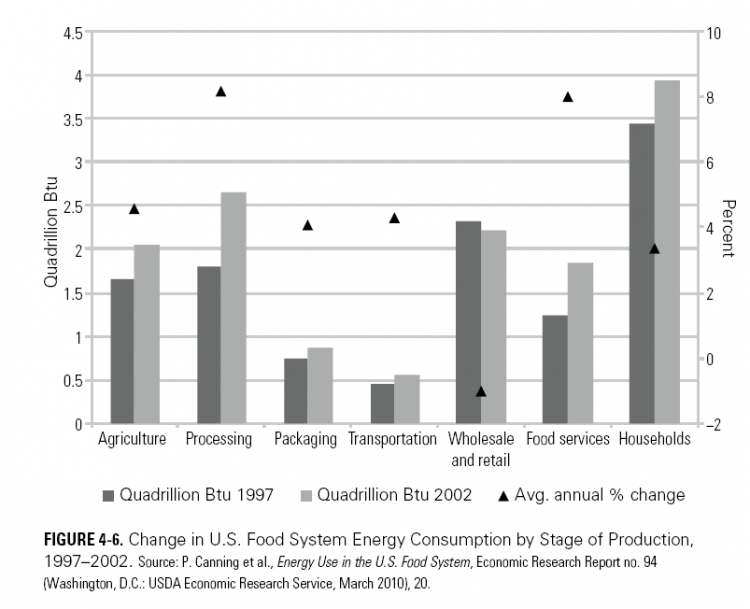Looking at Energy Use in the Food System

These days we’re all learning about our energy supply, whether or not we have expected those lessons, and that includes advocates for a healthier food supply. For a broad overview of the food system with emphasis on energy use, check out the Post-Carbon Institute publication on “Rebuilding the Foodshed: How to Create Local, Sustainable & Secure Food Systems,” Part 4, on the energy used in processing: http://www.resilience.org/stories/2013-05-10/food-energy-processing. Links to parts 1-3 appear at the beginning of that article.
Energy from any source has limits and costs, and so does our ability to translate energy into useable form. Conservation efforts, and good examples and education around conservation, are needed at all levels, and this requires examination of our public and private practices in light of energy.
Transportation energy, often used as a primary argument for local food, is actually the smallest user of energy in the food chain, and local foods may require more rather than less transportation energy. Further, the biggest part of food energy is in home use – all that refrigeration, freezing, use of labor-saving gadgets, and cooking.
See also the accompanying chart based on the USDA Economic Research Services 2010 summary of energy use in the food chain, which shows a slight decrease in wholesale/retail energy use but increasing energy use in all other parts of the food chain: agriculture, processing, packaging, transportation, food services, and households. Note also that transportation accounts for the least energy use of all these, while household use is responsible for by far the most energy use of any segment of the food chain.
From a perspective of food energy use, the education of consumers around conservation in home kitchen practices could have a lot more impact than focusing on where the food originates. Not that there aren’t additional important reasons to support local producers. But to reflexively claim, as is repeatedly stated, that buying local reduces the embedded energy costs in the food is something of a distraction and can even be untrue.







